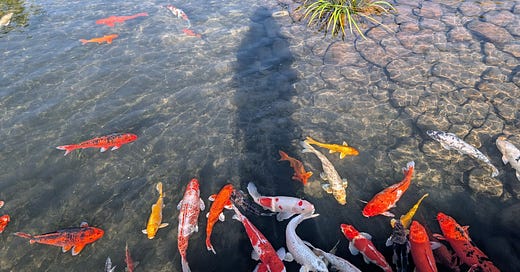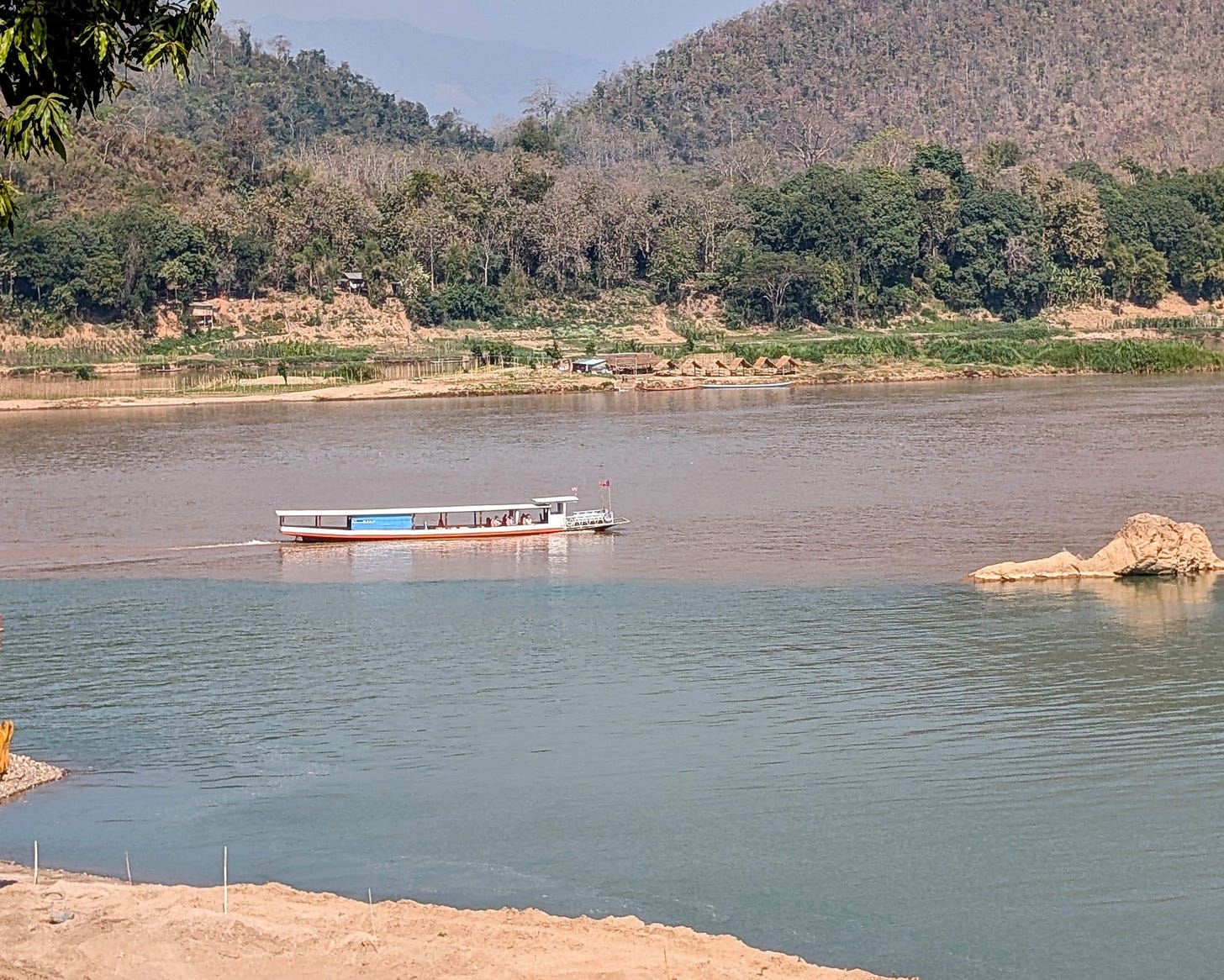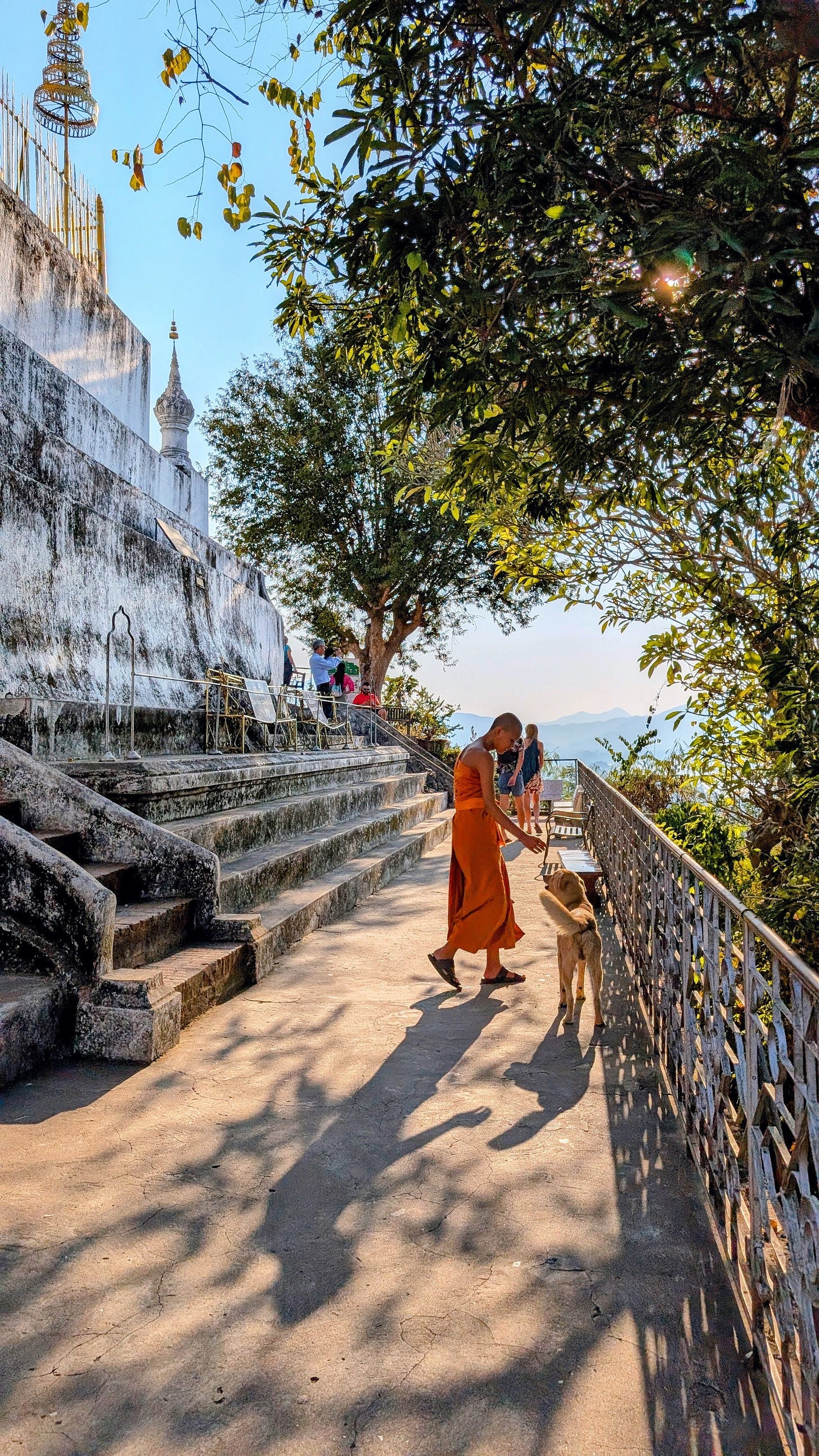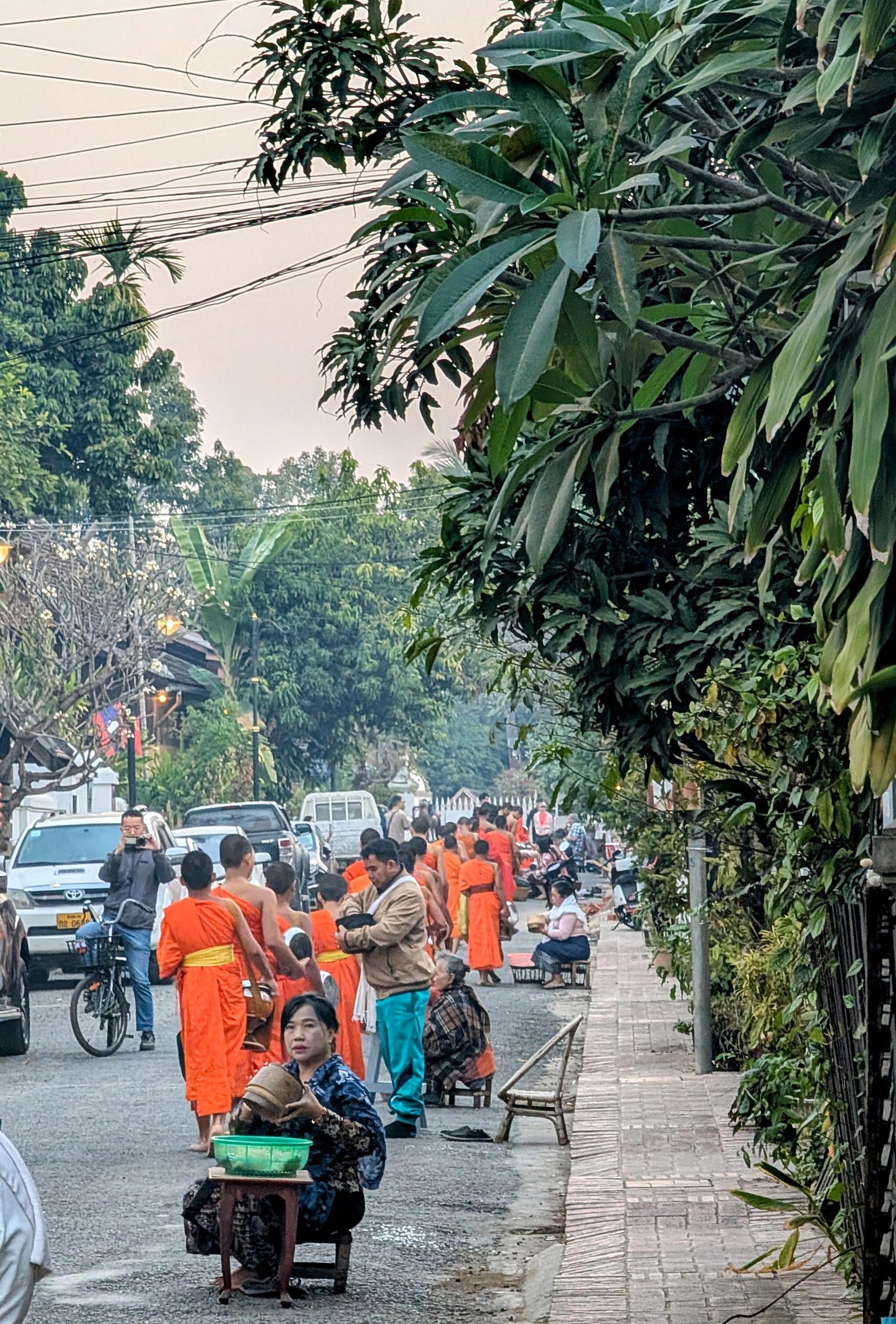The trip to Laos was planned, as some of you Picklers know, in the middle of last year. Spending a chunk of January NOT in Minnesota sounded great, and spending it in Southeast Asia following around a chef sounded even better.
Of course in September it didn’t even occur to me that we’d be gone over Inauguration Day, but at that point I still had faith that things were going another way. More toward joy, less toward fear.
In Laos, the city of Luang Prabang is a UNESCO World Heritage site. It lives on the peninsula where the Mekong River meets the Nam Khan River, bringing green water and brown water uneventfully together in front of humans for hundreds of years. Around the 15th century the city became the capital when the land was known as Lan Xang or Land of a Million Elephants, a kingdom covering much of Laos and Thailand. Maybe it’s the confluence, but the city is comfortable with duality: the wealthy city was both one of the most strategic and influential locations on the Silk Route, and it was also the center of Buddhism in the region.
There are more than 30 Buddhist temples in the current city of about 50,000 people.
Of course the Chinese came along, the French came along, things were burned, and things rebuilt. Now the city bustles with European architecture and flaky croissants, coconut pancakes cooked on the street corner, Buddhist monks using cell phones to make content, shops blooming with beautiful hand-woven textiles from village women, all existing together under the rule of Lao PDR: the People’s Democratic Republic is a one-party parliamentary socialist republic (but our guides liked to joke that PDR meant Please Don’t Rush).
The complexities of this city kept washing over me like the warm night air as we scooted home from a cocktail bar in the back of a tuk-tuk. Motorbikes and scooters by the hundreds, tuk-tuks, cars, white tour vans, bicycles all flow through the narrow, ancient streets and there are no stoplights. There are no stop signs. No one is standing at the crossroads outside the night market waving directions. The flow is self-managed. There are no horns, a total lack of beeping and blaring. There is a shocking (to a Westerner) absence of yelling and fist-waving, I witnessed zero road rage.
Everyone has a place to go, everyone is moving forward in a shared space, no one’s need is empirically more important than anyone else’s. If someone on a motorbike squeezes in front of you, there must have been space, they are not insulting you, they are just in the flow with you. Mind blowing.
On the day everyone in the US was waking up to the swearing in of new leadership, it was already the end of our Monday and I was climbing down Phou Si Hill. The peak sits in the center of town and is easily scalable by climbing the 300 steep steps. Our friend Kham told us that the hill was once home to an ancient and powerful naga, a half serpent-half deity. The naga are said to use the waterways surrounding the city to navigate between the spirit and human worlds.
On the way up to the Wat Chom Si temple at the peak, there are people selling tiny caged birds. The idea is that you carry one with you on your climb while you think about a specific worry or burden in your life. Once at the top you release the bird and the darkness goes with it. Though, Kham told us, with this act you are promising never to eat another bird for the rest of your life. Because that is inviting the darkness back into your body. If you let it go, you have to release it from the rest of your life.
Kham used to be a monk. He came to Luang Prabang from a village when he was young, and became a monk because his family could not afford to keep him around. He says that he learned many, many things, and that it saved his life. After 12 years, he decided to stop being a monk. Kham told us that in Buddhism there is no moral hand-wringing or judgement around this, no feeling of failure or disappointment from others. When you feel that you are done, you are done. You continually die and are reborn in the new chapters of your life, taking what you have learned and spreading it out among the people in your new life. You simply live your teachings.
Every day, the city feeds the monks. We took part in the city-wide alms giving at dawn, where the monks walk through the streets and the people fill their bowls with rice and other foods. During the day, when the you hear drum beats echoing through the streets, you learn that this is the call for cooks. When they hear it, people begin cooking food to bring to the monks, who only eat what is offered to them. It is a way to deepen the spiritual connection between the monks and the people.
We were standing in the courtyard of a temple learning about architecture and symbolism when the drum was beaten. Shortly after, a few people entered the courtyard bearing bags of rice and vegetables. A man turned the corner and Kham recognized and greeted him, exchanging a few words and patting him on the shoulder before he continued on his way with a big green plastic bag stretched to the limit with what looked like soup.
“He’s had a bit trouble, that one,” Kham said to me on the side. “He’s working his way back to his self, he’s going to be here every day for a long while. That’s what happens.”
Maybe you can see why, when I started getting the flurry of texts and notifications of the actions following January 20th that I was, in a way, askew.
I was out of context.
Steeped in a place that has seen its share of political change, literally marked house by house built either French colonial or traditional Lao both flying hammer and sickle flags, it wasn’t that I couldn’t understand the impact of upheavals.
But it was the quiet flow of humanity around me that stole me away from panic.
I have not become an instant Buddhist, but I can’t ignore how the teachings and traditions become so much more than theories and beliefs when you can witness a culture built on the principles. Karma doesn’t just mean that one life defines and turns into the next life, it’s that one moment defines the next moment. Scream at someone and your world becomes full of anger … be generous, and you might find yourself in a life of abundance.
So as I came home to battle the jet lag and return to my crisp winter life, there are choices to make. I know I won’t turn a blind eye to fascism, and that the work to create a more equitable world is worth the struggle, even if that struggle takes longer than expected. Though, I had to decide if I was going to go back to the habit of doom-scrolling and deep-diving through comments on social media, ingesting the worst about the typists, be they bots or humans not yet realizing what they sow for themselves.
But I think I let that bird fly free.









Enjoyed very much.
Beautiful writing. Enjoyed your writing of your vacation.